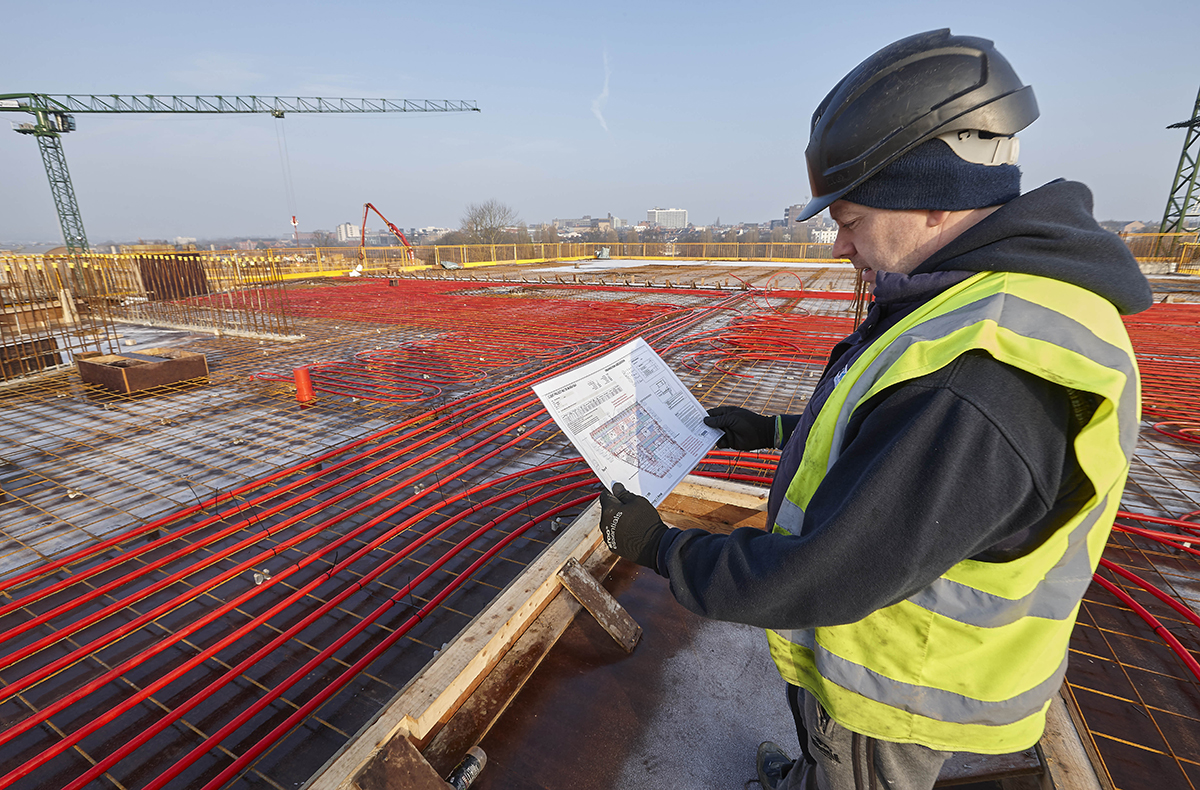
A new white paper is highlighting the importance of sustainable HVAC systems to construction professionals.
The resource, from polymer specialist REHAU, identifies issues around building overheating, air quality and sustainability, and the need to decarbonise new and existing buildings to meet net zero targets.
Citing UK Green Building Council findings that heating and cooling is responsible for large quantities of buildings’ ‘in use’ emissions, the white paper explores the impact of sustainable HVAC systems on construction.
The role that thermally activated building structures (TABS) technology could play in addressing fears around overheating is looked at. A means of space heating and cooling, TABS uses pipework embedded within a building’s concrete structure, running either an elevated chilled water temperature for cooling requirements, or low-temperature hot water for heating needs.
“TABS is growing in popularity because they are economical and efficient, yielding up to a 47% reduction in annual energy costs when compared to traditional HVAC systems,” said Franz Huelle, head of technical at REHAU Building Solutions. “This is because whether for heating or cooling requirements, water flows of different temperatures influence the temperature of the building’s concrete structure.
“By opting for such a system, specifiers eliminate the need to regulate temperatures in individual rooms with their own specific load requirements. Instead, the pipework allows the building’s mass and thermal dynamic behaviour to be used to maintain comfortable conditions, almost like a living organism.”
REHAU added that, commonly used for larger buildings, TABS processes activate the large thermal mass of concrete structures, acting as a ‘buffer’ for varying cooling or heating loads. The white paper studies the benefits of the technology’s high thermal inertia, large surface areas and radiative heating and cooling properties, including reduced carbon emissions and increased occupier health and comfort.
Franz said, “When it comes to selecting an appropriate HVAC system, everything always comes down to one fundamental question – does this technology offer a compelling business case? As our new white paper identifies, given the pressures to deliver buildings that meet future sustainability needs, TABS should definitely be considered under these parameters.
“For example, because these systems can continuously expel heat throughout the day, they are well-placed to tackle the urgent threat of buildings overheating in the warmer months. This is of particular importance as weather patterns become more extreme and high-performance insulation becomes the standard in new-build properties.
“Contractors, specifiers and developers may therefore need to engage more specialist assistance to meet these challenges and other longstanding priorities such as lowering construction and maintenance costs,” concludes Franz. “TABS’ ability to realise these benefits while decarbonising the nation’s building stock explains why building professionals should read this new white paper and explore the technology’s viability going forward.”








